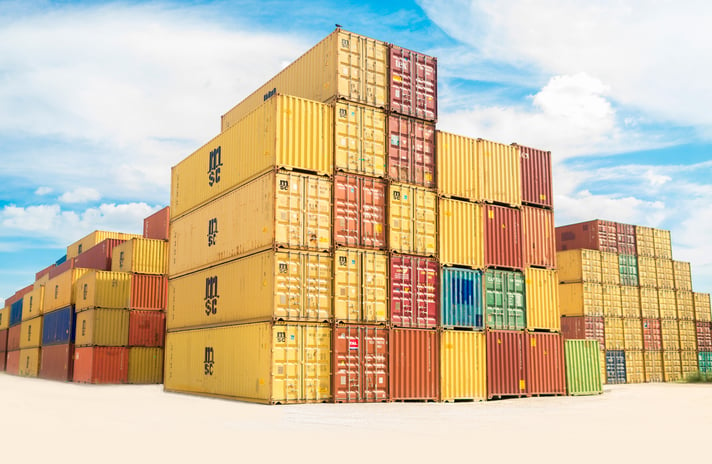REDWOOD LOGIN
Redwood PortalLTL
SCS
SCS Support
Rockfarm
 In this article, we are going to be discussing what intermodal transport is, how it generally works, and more importantly… How this system of transport greatly benefits freight operations.
In this article, we are going to be discussing what intermodal transport is, how it generally works, and more importantly… How this system of transport greatly benefits freight operations.
In a nutshell, Intermodal freight transport (IFT) is a term that describes the action of using two or more different modes of transportation to move goods from their origin to their destination.
Simple, right?
Yeah, it’s extremely easy to understand but let’s look at how this method compares with more traditional OTR transport operations and what the process looks like…
In traditional over the road (OTR) shipping, cargo leaves from a warehouse on a dedicated truck. It is carried over the road, making many stops along the way to either fuel up or allow the driver to meet their requirements for Hours of Service (HOS). This equals to hours of downtime which amounts to dollars that could have been spent on perfecting other areas of the operation.
If it is long-haul freight, the driver will more than likely carry the container all the way to the courier warehouse or other destination. Potentially, this also means that it may be transferred through a line of other trucks, being unloaded and loaded again at various checkpoints, increasing the chance of damage to goods, loss of goods, and a number of other issues that could arise from this “high-touch” method.
Intermodal freight transport, unlike traditional OTR operations, makes use of a variety of different shipping methods to move a single shipment of cargo.
For example, cargo may be loaded into a stackable container that is specifically designed to be able to be transported easily on a variety of vessels/vehicles. It is then transported by truck to either a seaport or a railway. When the truck arrives, the entire container is simply taken off the truck by a large crane designed machine. The truck driver is now freed up to head back to his warehouse.
At this point, the whole shipping container is loaded onto either the ship or the cargo train and sent on its way to its next stop where it is picked up for a short-haul to whatever facility is going to deliver it right to the customer's doorstep.
Intermodal freight transportation comes with quite a few benefits to all parties involved.
First and foremost, the greatest benefit comes from the fact that this type of shipping method can really take the brakes off the whole process. What I mean by this is that since the truck drivers will generally only need to take cargo a short distance either when unloading at the first station, or picking up at the last, HOS concerns are greatly minimized. And this leads to the cargo being placed into a system that keeps it constantly moving. Or at least, moving more frequently and at greater distances/speeds than traditionally.
And this leads into the next point…
By keeping the truck drivers moving on short-haul trips like this, they can potentially make more deliveries on a daily or weekly basis. They can move from one job to the next with relative ease, can be home at night generally (this is really useful when trying to develop good corporate social responsibility practices), and this can double the efficiency of basic transport needs overall.
Lastly, intermodal freight transport can save a company a lot of money.
Since there are fewer fuel costs involved when utilizing IFT, a company can free up a lot of its cash flow and then redirect it toward other things they may need to focus on. Fuel prices are changing every day, so anytime that a company can save on this expense needs to be taken advantage of.
When you compound that with the fact that drivers are only traveling short distances, you can easily see where a company could dump that cash flow. If they take this cash flow and reinvest into newer, more efficient trucks, hiring more drivers, or just put it back into their general shipping operations, their growth could be astronomical.
Intermodal transport can get freight to its destination in a fraction of the time that it would take if you were to use solely OTR transportation.
It is indeed more complex and at times may not be the most viable or wisest option such as is the case for smaller operations. But as this system continues to be expanded upon, I believe we may see a drastic decline in, at the very least, nationwide OTR freight.